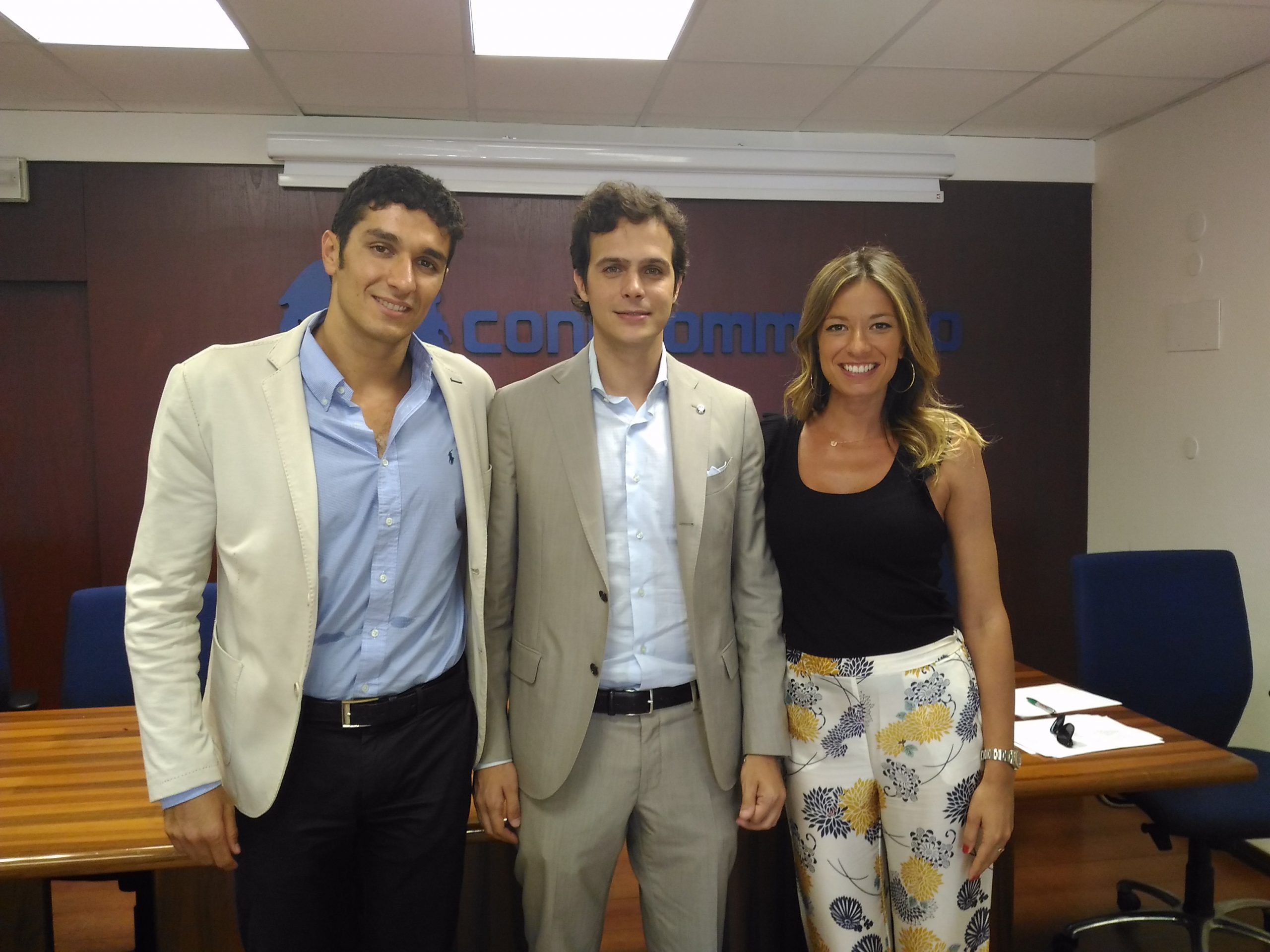Dario Palermo, a celebrated figure in contemporary music, is known for his innovative compositions that blend traditional classical techniques with modern electronic elements. His work reflects a deep understanding and appreciation of the musical giants who came before him, many of whom have profoundly influenced his approach to composition. In this article, we explore the top 10 most influential composers in Dario Palermo’s career, examining how their music and ideas have shaped his unique style.
1. Johann Sebastian Bach (1685–1750)
Johann Sebastian Bach, one of the greatest composers of the Baroque period, is known for his intricate counterpoint and harmonic mastery. Bach’s work has been a significant influence on countless composers, and Dario Palermo is no exception. Palermo’s appreciation for structure and form in music can be traced back to Bach’s complex fugues and choral works.
Bach’s influence is particularly evident in Palermo’s early compositions, where the use of counterpoint and harmonic progression reflects a deep understanding of Baroque principles. Palermo often draws upon the rigorous discipline of Bach’s compositions, using them as a foundation upon which to build his own modern, experimental works. The balance between structure and innovation in Palermo’s music owes much to the enduring legacy of Johann Sebastian Bach.
2. Ludwig van Beethoven (1770–1827)
Ludwig van Beethoven, a towering figure in Western classical music, is renowned for his ability to convey deep emotion through music. His compositions, which bridge the Classical and Romantic periods, are characterized by their boldness and expressive power. Beethoven’s influence on Dario Palermo is evident in the emotional depth and dynamic contrasts found in Palermo’s music.
Beethoven’s use of dramatic shifts in dynamics, tempo, and mood can be seen in Palermo’s works, where sudden changes in intensity often serve to heighten the emotional impact of a piece. Moreover, Beethoven’s innovative spirit—his willingness to push the boundaries of classical forms—resonates with Palermo’s own approach to composition, which frequently challenges traditional norms.
3. Igor Stravinsky (1882–1971)
Igor Stravinsky, a Russian composer known for his revolutionary approach to rhythm and orchestration, has had a profound impact on 20th-century music. Stravinsky’s work, particularly The Rite of Spring, is famous for its complex rhythms, dissonant harmonies, and innovative use of the orchestra. These elements have greatly influenced Dario Palermo’s compositional style.
Stravinsky’s ability to create tension and excitement through rhythm and orchestration can be seen in Palermo’s use of polyrhythms and unconventional instrumentation. Palermo often employs these techniques to create a sense of unpredictability and intensity in his music, much like Stravinsky did in his groundbreaking works. The influence of Stravinsky is also evident in Palermo’s interest in exploring the primitive and elemental aspects of sound.
4. Pierre Boulez (1925–2016)
Pierre Boulez, a French composer and conductor, was a leading figure in the post-war avant-garde movement. His work is characterized by its intellectual rigor and experimentation with serialism and electronic music. Boulez’s influence on Dario Palermo is significant, particularly in Palermo’s exploration of electronic and electroacoustic music.
Boulez’s approach to composition, which often involved the use of complex mathematical structures and serial techniques, resonates with Palermo’s own interest in blending rigorous compositional methods with cutting-edge technology. Palermo’s Electroacoustic Suite reflects this influence, combining live instruments with electronic elements in a way that pays homage to Boulez’s pioneering work in the field of electronic music.
5. Luciano Berio (1925–2003)
Luciano Berio, an Italian composer known for his experimental and eclectic approach to music, has had a significant influence on Dario Palermo’s career. Berio’s work often involved the use of extended techniques, non-traditional sounds, and the integration of various musical styles. This approach has inspired Palermo to explore the boundaries of what music can be.
Berio’s Sequenza series, which challenges performers to use their instruments in unconventional ways, has been particularly influential on Palermo. Palermo’s compositions frequently require performers to engage with their instruments in novel ways, whether through the use of extended techniques or the incorporation of electronic effects. Berio’s spirit of experimentation and innovation is a clear inspiration in Palermo’s work.
6. Karlheinz Stockhausen (1928–2007)
Karlheinz Stockhausen, a German composer and one of the pioneers of electronic music, has had a lasting impact on contemporary music. Stockhausen’s exploration of spatialization, serialism, and electronic soundscapes has influenced many composers, including Dario Palermo.
Palermo’s interest in spatialization—the placement of sound in a three-dimensional space—can be traced back to Stockhausen’s works, such as Gesang der Jünglinge and Kontakte. Palermo often incorporates spatial elements into his compositions, using technology to manipulate sound in ways that create a sense of movement and immersion. Stockhausen’s innovative use of electronic media continues to inspire Palermo’s approach to integrating technology with acoustic instruments.
7. Luigi Nono (1924–1990)
Luigi Nono, another Italian composer, was a leading figure in the post-war avant-garde. His music is known for its political engagement, use of electronics, and emphasis on the human voice. Nono’s commitment to social issues and his innovative use of sound have influenced Dario Palermo’s approach to composition.
Nono’s use of live electronics and his focus on the political dimension of music resonate with Palermo’s own work, particularly in pieces that address themes related to the environment and society. Palermo’s compositions often reflect a deep concern with the human condition, much like Nono’s, and he frequently uses electronic media to enhance the expressive potential of his music.
8. György Ligeti (1923–2006)
György Ligeti, a Hungarian-Austrian composer known for his complex and atmospheric music, has been a significant influence on Dario Palermo. Ligeti’s works, such as Atmosphères and Lux Aeterna, are characterized by their use of micropolyphony, dense textures, and surreal soundscapes.
Palermo’s interest in creating immersive sonic environments can be traced back to Ligeti’s influence. Palermo often employs dense, overlapping textures in his music, creating a sense of depth and complexity that is reminiscent of Ligeti’s work. The atmospheric quality of Palermo’s compositions, which often evoke natural landscapes and abstract spaces, also reflects Ligeti’s impact.
9. Olivier Messiaen (1908–1992)
Olivier Messiaen, a French composer and organist, is renowned for his unique use of rhythm, color, and bird song in his compositions. Messiaen’s music, which often reflects his deep Catholic faith and fascination with nature, has influenced many composers, including Dario Palermo.
Messiaen’s approach to rhythm, particularly his use of non-retrogradable rhythms and complex time signatures, has influenced Palermo’s rhythmic structures. Additionally, Messiaen’s interest in the natural world and his incorporation of bird songs into his music resonate with Palermo’s thematic focus on nature and the environment. Palermo’s compositions often reflect a similar fascination with the rhythms and sounds of the natural world.
10. John Cage (1912–1992)
John Cage, an American composer and philosopher, is one of the most influential figures in 20th-century music. Cage’s work, which challenges traditional notions of music and sound, has had a profound impact on the development of experimental music. Dario Palermo has been inspired by Cage’s ideas about chance, indeterminacy, and the role of silence in music.
Cage’s influence is evident in Palermo’s willingness to embrace the unexpected and to explore the boundaries of sound. Palermo’s compositions often incorporate elements of chance, whether through aleatoric techniques or the use of electronic media that introduce a degree of unpredictability. Cage’s philosophy of music as an open, evolving process continues to inspire Palermo’s approach to composition.
Conclusion
Dario Palermo’s career as a composer has been shaped by a diverse range of influences, from the structural rigor of Johann Sebastian Bach to the experimental daring of John Cage. These composers have not only informed Palermo’s technical approach to composition but have also inspired him to explore new ideas and push the boundaries of what music can be.
By blending the lessons learned from these musical giants with his own innovative spirit, Palermo has developed a unique voice in contemporary music. His work stands as a testament to the enduring relevance of these composers and the ways in which their ideas continue to inspire new generations of musicians. As we look to the future, it is clear that the influence of these composers will continue to resonate in Palermo’s music, ensuring that their legacies endure in the ever-evolving world of contemporary composition.

